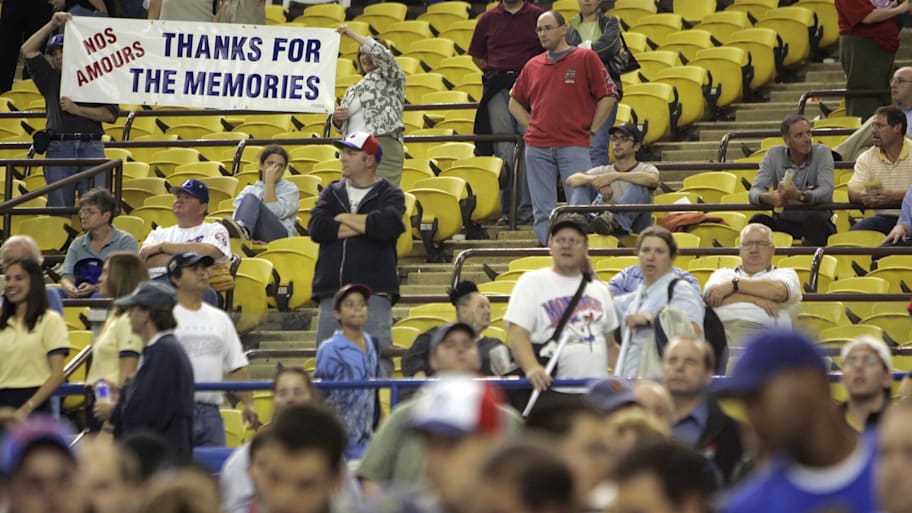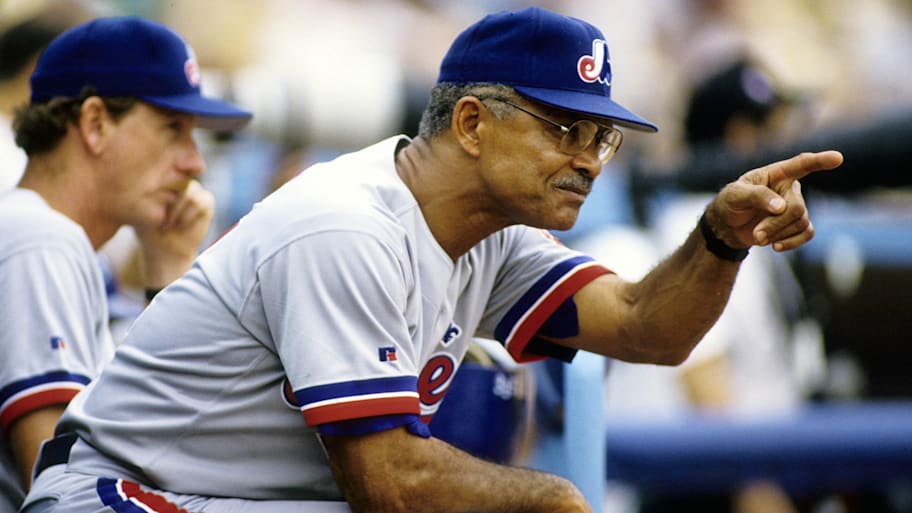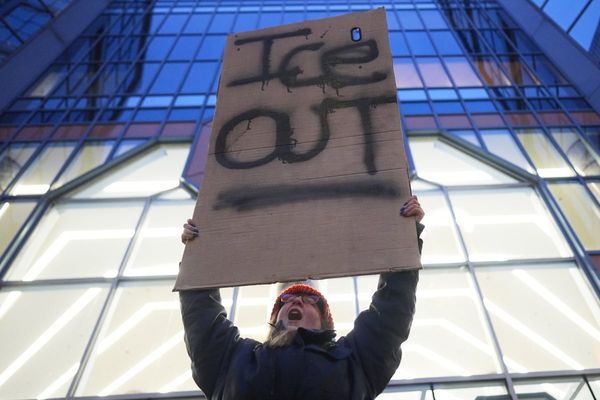
Let’s lead off with a spoiler alert. The documentary—not unflawed, but quite a good one, on balance—is titled, provocatively, Who Killed the Montreal Expos? But the demise of Canada’s beloved National League team was not a murder (who) so much as it was a death from natural causes (what).
The film depicts a cast of heroes, including the universally beloved Felipe Alou, a very cool Pedro Martínez, Canadian star Larry Walker and an assortment of beleaguered fans whose loyalty wasn’t reciprocated. And there are villains—cloying David Samson and his former stepdad, owner Jeffrey Loria, and, to a lesser degree, the hapless Claude Brochu.
But above all, there were immutable, unsentimental forces at play. That is, the usual suspects: An unfavorable exchange rate meant that the Expos took in revenue in Canadian dollars, but paid players their ever-escalating salaries in stronger American dollars. A provincial government that—agree or disagree—took a stand that other cities did not, and refused to commit public money to funding a new sports venue. There were the revenues lost and revenues spent maintaining the old venue—Olympic Stadium, a charmless white elephant on the wrong side of town, built to host a few events for the 1976 Summer Games, not 80-plus baseball games a year in a flourishing pro sports sector decades later.
Rule of thumb: When you play in a domed stadium and still face rain delays because the roof springs leaks, you know you’re in trouble. The Expos’ death? Olympic Stadium wasn’t the scene of the crime so much as it was the proximate cause of the crime.
Nevertheless, the Netflix documentary, which premieres Oct. 21, offers both a poignant, locally flavored love letter and an earnest post-mortem for a franchise that deserves better. The Montreal Expos’ last game was held in 2004 after a strange sort of three-way trade that brought MLB franchises to Miami and Washington, D.C., and eliminated one from Quebec. And more than 20 years later, countless fans have yet to work through their grief. Now here comes the film—explicitly geared to the French-speaking locals—that will provide a bit of balm for what remains an open wound.
The timing for the doc’s release works as well. Never mind that the lone remaining Canadian team, the Blue Jays, of course, are amid a deep postseason run. At a time of tariffs, rhetoric over a 51st state and “American betrayal” chilling neighborly relations, the story of a foreign baseball team, brash Americans and the winners-take-all realities of capitalism add resonance.
Sports Illustrated recently spoke to Montreal-based director Jean-François Poisson and producer Marie-Christine Pouliot.
This interview has been lightly edited for clarity and brevity.

Sports Illustrated: What’s your history with this baseball club?
Jean-François Poisson: I was young when the Expos were here. So mostly it was through my father. He was a big baseball fan, so I was able to watch games on TV.
Marie-Christine Pouliot: Everybody in Quebec, either parents or grandparents, brought them to a baseball game. But for me, actually, my first day [working] in television was at the Montreal Expos. So that’s how I started my career. So I did the four years there, and I was very fortunate to be there on the last game also, and that’s when I saw the impact of when they left, and also with the people with whom I was working. Some of them have worked for the Expos for 30 years. So it was truly, truly heartbreaking.
SI: One thing you get from watching the film is that this is still sort of an open wound. Teams leave [markets] all the time, but why do you think this still cuts so deeply in Montreal?
JFP: I think it’s coming from a lack of answers. The Expos moved, but I don’t think anybody gave a real answer to the Quebec people. So they just swam in this uncertainty and in those emotions, and also they felt, We failed. This was the first [MLB] team in Canada. We were small Quebec. We were so proud of it. We are proud of our values—Québécois, which are different from the U.S. and the rest of Canada. We were proud of that. But we also dream about being in the big leagues and being like the U.S. and having the big team and being with the big ones. But can you really be with the big ones and keep your values?
MCP: I think having a team from the American pastime, it was so big … having a team here in Montreal, where for 160 days, you can see in the U.S., Montreal, and, you know, we’re French, and we’re in Canada. I think it was so important.
JFP: A bit of shame, a bit of failure. We don’t want to think about this quote that David [Samson] says, Baseball in Montreal doesn’t work. We don’t want it.
MCP: I think our culture is different. We have our differences, and I think we’re really proud of it, and I think that’s why people love the Expos and love the players so much. They were different. They were, as us, warm and cool and … they were friends.
JFP: It was [especially] hard the last year. It’s like nobody was doing anything. Fans were angry. Didn’t know what was happening.
MCP: There were more people working than actually people in the stands.
SI: Let me bounce a theory off of you. It wasn’t who killed the Expos, but what. And it was a stadium.
JFP: Yes, it was mostly what? But it was more catchy, who? The question is good, but I think the answer is the thing that we need to focus on.
MCP: But I think what’s interesting also: Everybody has a story with the Expos and a theory … a lot of people that had their idea or are still stuck.
SI: I’m curious what your interactions with Jeffrey Loria, who obviously didn’t go on camera, were like. How far down the road did you get with him?
JFP: Well, we asked him to participate, of course, but he’s getting on in age, and we really wanted to ask hard questions. So we thought that David [Samson] would be a better person to answer those questions.
SI: Given the political climate, the fact that Americans and capitalism big-footed the well-intentioned Canadians seems very relevant. Did you see this through the [political] moment we’re living in?
JFP: There was something that was resonating. There was some stuff that was still relevant with the news right now, the way we see money—
MCP: We’re still pretty much exactly the same. In the movie, when you see Lucien Bouchard [former premier of Quebec] talking, We want to save the hospital and we want to save the school [and not use those funds to pay for a sports stadium], well, we’re still doing that. We’re still saying the same thing in Quebec, we’re pretty much the same—
JFP: The values didn’t change. Quebec still has the same values, and the U.S. too. So I think it resonates. It still resonates … and truly, we didn’t really approach it as a sports documentary. It’s mostly a cultural one, mostly a story about a clash between two cultures, right? And it’s relevant.
SI: What’s the biggest difference between Americans and Canadians?
MCP: I think we’re nice. Americans are nice, but … just look at the [relationship] between Brochu and Samson, you just see the clash of the way we’re doing things. It doesn’t mean one is better than the other, but it’s different.
JFP: Brochu is a typical Québécois. Consensus-seeking. And David [Samson] is American, with all the values, we can say he could say the same sentence wouldn’t resonate the same, right? Just because of the tone, this film, because of what Samson said in the movie, it’s valuable, it’s opinion and it’s quite strong, but it’s the way he’s saying it … we’re not used to that. We never shout against each other. Debates in Quebec are very soft. We don’t yell. The way they do things is cocky, and he’s a businessman. You want to do money? He’s thinking about that. This is his job. So he’s doing it. He’s not thinking about No, I don’t want to. I don’t want to be gentle with it. No, I want to do that.
SI: If the Blue Jays win the World Series, how does that go over in Montreal?
More MLB on Sports Illustrated
This article was originally published on www.si.com as The Reasons Behind the Death of the Montreal Expos Still Resonate Today.







